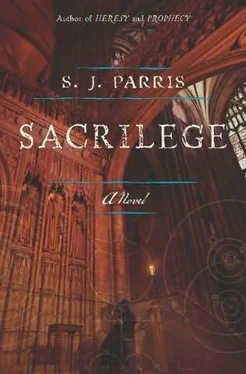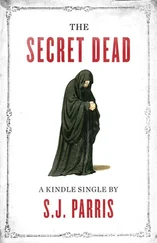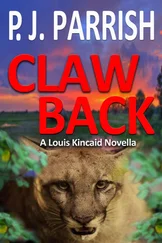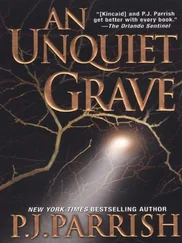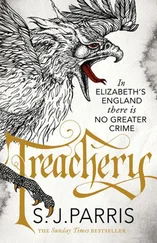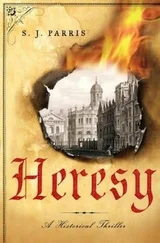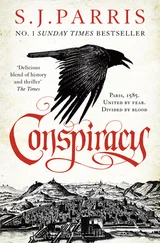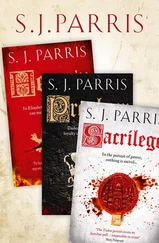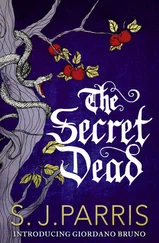As I stood staring into the empty hearth, trying to decide how I should proceed, I noticed among the ashes a few scraps of burnt paper. Intrigued, I bent closer and realised that under the charred logs was a mass of blackened paper fragments; someone had clearly thrown a bundle of documents onto the fire not long before it was allowed to die. Most were reduced to ash, but one or two had fluttered to the back of the fireplace and escaped the worst of the flames. Pulling up my shirtsleeve, I reached in and hooked out the truant pages. They were badly burned around the edges, but in the centre some of the writing was still legible, through brown patches left by the heat and smoke. One appeared to be a page torn from the great ledger Fitch had used the day before when he recorded my purchase for his accounts. Almost none of the writing was left visible, though I could make out the line “mercury & antimony salts …” and beside it the name “Ezek. Syk …”
The second surviving page was more interesting; I held it towards the window and tried to make sense of the words I read.
“After Paracelsus,” it said, at the top, “according to his Archidoxes. ” The next few lines had been rendered obscure by the fire. But beneath, the word “laudanum” stood out clearly, followed by what looked like instructions for a remedy. “Mixed with one part rosemary oil and one part good wine and distilled will bring on the sleep of Morpheus …” Again the writing disappeared, but below whatever had been scorched away I read the word “Belladonna.” Underneath, the author had underlined the following sentence twice, so heavily the quill had pierced the paper: “No more than eight grains diluted while under the influence, though double may be tolerated by… [these next two words were illegible]. Dosis sola facit venenum. ”
The dose alone makes the poison. I knew this maxim of Paracelsus, the great Swiss alchemist and physician who had died some forty years earlier; he argued that all substances were potentially beneficial, even those we call toxic, and that the art of medicine was in judging the quantity and exposure that would heal rather than kill. But he argued a lot more besides; in his alchemical studies, Paracelsus had been a student of the philosophy of Hermes Trismegistus, the Egyptian sage whose wisdom I had studied, though in Paris it had earned me a reputation as a sorcerer. Needless to say, the writings of Paracelsus had been forbidden by my order when I was still a monk and I had risked much to track them down and study them. I recalled paying a substantial sum of money to a black-market bookseller in Naples for a copy of the Archidoxes of Magic , a treatise on medicine and alchemy that drew on the movements of the planets and the secrets of astrology. It was not a work I would have expected to find in the shop of a provincial apothecary, but perhaps there was more to Fitch than had been apparent in his breezy, village-gossip manner.
Nothing more could be made out; I turned the paper over but it offered no further clues. In the silence of the room I could hear the blood pounding in my ears as I struggled to make sense of the fragment. Holding it between my fingers as if it might crumble to dust at any moment, I forced my eyes back to the body on the floor.
There was no need to move Fitch to see that his skull had been staved in, though the face and neck were also badly battered, suggesting his assailant had not felled him with the first blow. His limbs had already stiffened into grotesque contortions, one arm thrown forward next to the face. Crouching beside him, I closed my eyes for a moment and laid my fingertips on the sleeve of his shirt, hard and crusted with dried blood, as a mark of respect, trying to imagine the scene that must have ensued not long after I had bid him goodbye with a promise to return in the morning for his tonic. The killing seemed the frenzied work of a madman—Fitch must have been chased around his distillery, desperately trying to fight off his attacker—but the burnt pages in the fireplace suggested something different. Who had thrown them into the flames? Fitch, to prevent someone from seeing them, or whoever had struck him down?
My thoughts were interrupted by a sharp knock at the door. I had forgotten the girl, Rebecca, waiting outside. Now I stepped carefully around the dead apothecary and through the narrow doorway into the shop. This room too was in a state of chaos, as I had seen through the shutters; books had been pulled from shelves and lay scattered about, and an earthenware jar, knocked to the ground, had broken to spill its contents—a pungent yellow powder—across the reeds that covered the stone floor. Empty spaces gaped on a number of the shelves where objects had evidently been hastily removed and not replaced.
The knock came again and I heard the girl calling, “Hello?” Crossing to the front door, I found it locked, with the key still in the keyhole. Whoever had killed Fitch must have left through the back, then. But the door had not been forced; the apothecary must have opened it to his attacker. As I turned the key, my hand froze and my breath caught in my throat as I recalled the physician Sykes in his absurd plague mask, thundering in and demanding that Fitch lock up the shop to give him private audience.
“Uncle William?” the girl asked from the other side of the door, her voice doubtful. I pulled it open just a fraction; as soon as she saw me, her lip trembled. “Where is he?”
“You must go for a constable right away,” I said, keeping my voice low. A couple of goodwives with covered baskets had stopped in the street behind the girl and were watching the door with lively curiosity. “Don’t stop to speak to anyone—just bring him as fast as you can. Do you know where to find one?”
“I want to see my uncle! What has happened?” She planted herself stubbornly on the threshold, her voice loud enough to attract further attention from passersby. I motioned with a finger against my lip.
“I’m afraid your uncle has met with an accident.”
“Oh, God!” She pressed her hands to her cheeks and set up a wail that threatened to rouse the whole street.
“Please—you must fetch a constable.” Perhaps the urgency in my voice lent it some authority; she stopped her noise abruptly, looked at me uncertainly for a moment, and nodded. “Bring him around the back,” I added, giving one sharp look to the staring women before closing the shop door and locking it again. Nothing draws a crowd like a violent death, and I felt the dead man deserved better than to be made into a spectacle for gawping market-goers.
In the gloom, I bent to look at one of the books that had been thrown onto the floor. It was a volume of A New Herbal by William Turner, dog-eared and clearly well-used by a reader who had meticulously annotated and illustrated the margins of almost every page. Squinting, I held up the fragment of paper I had rescued from the embers against the book; the hand was the same as that of the notes scribbled on the pages, which it seemed reasonable to assume was that of Fitch himself. So the papers in the fire, with their curious reference to Paracelsus, had been written by the apothecary—but why had they been thrown into the flames? Without quite knowing why, I folded the charred paper and tucked it into the purse I carried at my belt.
The smell of dead meat by now was almost overpowering; I decided to wait for the constable outside the back door. Still I found it hard to tear my eyes from the corpse. I had looked on violent death many times in my life, especially in the past couple of years, yet it never ceased to chill me, the fragility of our bodies, the way a life can be snuffed out quicker than a candle. Presently the sound of brisk footsteps interrupted this reverie, followed by a rap at the gate in the back wall. I hurried to open the latch and found myself face-to-face with the ginger-haired man whom I had noticed in the marketplace by the cathedral gate the previous evening. He narrowed his eyes as if trying to place me, stroking his pointed beard, then waved me aside.
Читать дальше
Конец ознакомительного отрывка
Купить книгу
